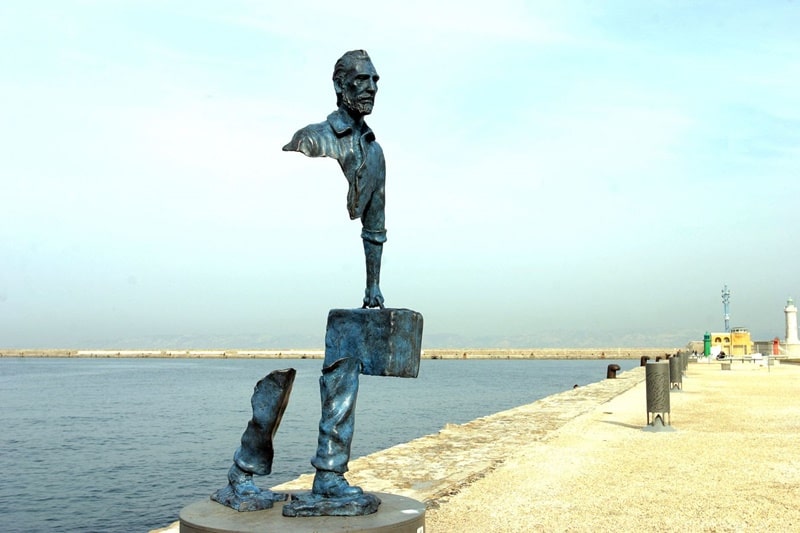
South African abroad: Facing the void and sense of loss…
Not that many years ago – in fact, the day before the RWC 2019 final – I sat in my daughter’s school assembly wearing my Springbok rugby jersey (couldn’t resist taunting, just a little)… writes writer, wife, mother and dreamer ANDREA ZANIN, who now lives in the UK and is author of Our Fireside Stories. […]

Not that many years ago – in fact, the day before the RWC 2019 final – I sat in my daughter’s school assembly wearing my Springbok rugby jersey (couldn’t resist taunting, just a little)… writes writer, wife, mother and dreamer ANDREA ZANIN, who now lives in the UK and is author of Our Fireside Stories.
There were two of us in green and gold although Leah, my Zambian friend, declared that she was wearing her colours for the last time, having sold her soul to the Roses. Unacceptable. We were debating the intricacies of this very obvious and unequivocal betrayal until the buzz in the hall quietened and Amelia’s class stood for their opening song.
Thirty seconds into A World in Union I was chewing my lip raw in an effort to hold back tears. The heart of the song beat in the air as unfeigned voices imagined the far-off Utopia of a united world—I felt it in my bones. South Africa’s song — not really but it could so easily have been written for ’95, when the country stood on the precipice of a new age. So much hope.
Yet here I sat, in England in a Springbok jersey, listening to my pseudo-South African child, in an English school, singing a song that, to me, is home.
The weight of the moment made visceral something that I have always known but not ever articulated in thought or emotion; that there’s a brutal sense of loss associated with the de-homing of the soul (and the person) — whether that de-homing is by choice or by force.
There was no weeping and gnashing of teeth or pulling at shrouds of black draping my grief-withered body when Warren and I (married two years and ready to see the world) boarded a plane outa town. No. We left peacefully and almost facetiously, like petulant children, stamping our feet and demanding more, better — testing the stretch of the umbilical cord. Ready to see the world and live dreams.
Of course, we didn’t know it was for good. Mitigating perhaps. Yet I was sure to visit all the old places I loved, just in case — my old house, my schools, the park where my brothers and I played hide-and-seek and argued over the unequal distribution of gumballs in bright blue bubble-gum ice-creams that were bigger than our faces.
I drove down the streets where my childhood friends lived and remembered sleepovers, made-up languages, whispered conversations about tween crushes and who had asked who to dance at Remy Cano’s disco the weekend before. These atmospheres now live in my dreams. I knew their time was up — as tangible realities, which is why I went to say goodbye. I had decided before I was ready to admit that I had.
The heartache might have taken me by surprise but, really, I’d been getting used to it for some time without being fully cognisant, and so the emotional aftermath has been almost anticlimactic.
Loss is not justified by excess. This kind was a slow burn. It’s just… I finally noticed the wound; bloody and festering but not entirely unfamiliar. How does it feel to be broken hearted when it wasn’t a person that did the pulverising but a place? Agonising — yes. Tragic — of course.
The catalyst was the Rugby World Cup (2019), which incited a tidal wave of nostalgia to crash violently down on my unsuspecting psyche (poor thing), as I watched South Africa rise to glory with my friends and family in North London.
Rugby — really? I know, it sounds kooky. Let me explain. Rugby is home. Home is gone. I’ve lived with that for longer than I’ve been an expat (albeit unsuspectingly) because the existential catastrophe is that home is not the South Africa that exists today; the South Africa of my childhood — a reality made all the more poignant with the perspective of immigration. This might sound obvious: no country is the same now as it was then. This is true. But South Africa had everything to gain because change was rife and the subjective South Africa of my childhood was a pretty messed up place… but she faltered at the brink of epic and then floundered, and is still floundering like a fish out of water, struggling to breathe.
I’ve not merely lost time and even place, that’s quite natural; I’ve lost (as have all South Africans) what could have and should have been — a future in the land of my birth. It’s life but it hurts.
So I sit, carefully crafting back together, with cello tape, glue and some sketchy needle-and-thread skills, the pieces of a shattered heart. As it turns out, that red, bulging, thumping beast of an organ that keeps me alive is quite broken. Exposing it feels weird and kind of uncomfortable. Oh wait — this is vulnerability, right? Not a fan. But I am going to embrace it because what else does one do with a broken heart? Cuddle it. Wallow in it. Sing to it. Give it chocolate. Take it to counselling. Put it on Facebook. Maybe? Probably. I don’t know. What I do know is that a writer must splurge — in the name of catharsis. Aristotle (and Plato — can’t leave the guy out) argued that the effect of tragic and comic theatre on an audience was purification of the soul. That’s what this is. Purgation. My splurge. My story. My broken heart. Shared with you.
I don’t pine for South Africa but I miss her – the GRIT of the people, their resilience and humour – and when I see an orange sunset or hear thunder rumble across the sky, I ache for her beauty. She makes me angry, still – her disregard and indifference – and I mourn what almost was.
Often, I have to fight the feeling that I am passing on to my children a vague silhouette, an inkling, a ghost, of something that shaped me, that is important to me, that lives in me but is not really real, anymore. And yet I need it to be real. I need to remember — to slosh around in bottomless nostalgia. I need to reclaim my home. Go back in time. But also forge boldly ahead because home is here. Home is now. Home is my faith, my family—Warren, my children. England. Home is England — London, North London. The place of my ancestors. Simple? I guess. But why, then, is saying it so damn hard.
Author & Storyteller: Andrea Zanin. View more stories like this on: Our Fireside Stories. This article is republished on SAPeople.com with Andrea’s kind permission.
SEND YOUR STORIES ABOUT LIVING ABROAD, MOVING BACK HOME, OR SIMPLY FEELING NOSTALGIC TO JEN@SAPEOPLE.COM
